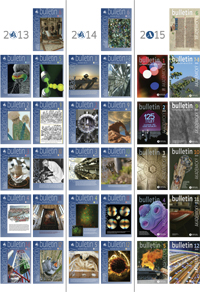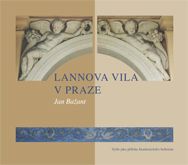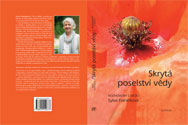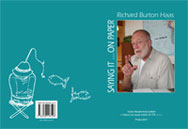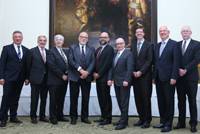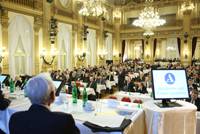SAYING IT… ON PAPER (4)

I ended the last essay with the assertion that writers have advantages that are not available to speakers. When I boiled it down for a friend, he thought it might be a contradiction. But here it is: The presence of an audience is an advantage to the speaker; the absence of an audience is an advantage to the writer.
For most situations I can think of, a listener must be present to have effective speaking. Last week, I saw a man walking down the street; he was speaking, but he was alone. My first reaction was that he was speaking to himself, and probably suffering from an emotional problem. Then I realized he was using a hands-free mobile phone. He was speaking to someone; he was receiving feedback. His listener was "present," at least in the airwaves. Without listeners, speakers become the only judges of their communicative effectiveness. If I'm speaking in one room and my listener is in another room, and if my listener does not respond, I would not know if I were succeeding or failing to communicate ("Are you there? Are you listening?"). I think it would be difficult, if not impossible, for me to continue speaking. I know I need feedback, and I think all speakers do, because listener feedback guides, corrects, encourages, cautions, and rewards speakers.Writing, of course, is another matter. The writer is usually pictured alone, a solitary figure bent over a sheet of paper or staring at a screen. Is it possible that this isolation could guide, correct, encourage, caution, and reward the writer? The absence of an audience must surely be a disadvantage, a limitation. Yes, it is a limitation in communication, but it is an essential limitation. The writer, that lone figure, is not lonely. Future readers are always "present" somewhere in the writing process, making their wishes and demands known, or in a less positive tone, haunting the writer ("Oh goodness, are they going to understand this?).
Richard Wilbur said, "Limitation makes for power," when asked what advantages there were in writing his poems in strict metrical patterns and challenging rhyme schemes. He may have said, "These limitations keep me from accepting the first things I think of and the first words that come to mind. They keep me from cheating my reader; they keep me honest as a writer." And like the limitations of meter and rhyme, the limitation of not having an audience present forces the writer to convert the limitations into advantages for better communication.
This conversion provides the writer with a clearer organization, more fluid sentences, more precise word choices, and often better ideas than those associated with conversational speech. Good writers identify their readers, attempt to analyze their level of understanding, their needs, and expectations. When they consider and adjust to the needs of their readers, they cease committing the common error of making sense only to themselves.
The conversion of limitations into strengths can encounter dangers. The analysis of the reader could turn out to be the alter ego of the writer. Also, the writer might attempt to impress his readers, a strategy that usually backfires and ends up irritating the readers. An attitude closely linked to impressing the reader is the view that writing is so utterly different from interesting, intelligent speech that they bear little, if any, similarity. In his book, If You Can Talk, You Can Write, Joel Saltzman illustrates this speech-writing conflict: Strangers and friends repeatedly ask, in these dreadful times of nuclear proliferation, political crisis, moral erosion and social dissatisfaction, just what kind of frivolous or malicious deviant would stockpile [sic: collect] hazardous weapons of potentially terrible harm? A conscientious neighbor or committed acquaintance will often condemn these trivial acquisitions and censure the trite maneuverings perpetuated for acquiring specimens amidst universal travails as being "superfluous."
It sounds impressive; it's complicated and serious, but I have to translate the text. Saltzman thinks if he "talked on paper," he might have said:
People always ask me how I can go around collecting fighting knives when what we really need is more peace in the world. It's like they're accusing me of being some kind of deviant because I happen to have a hobby they regard as frivolous, or even dangerous.
The writer will revise this "oral" version and might dress it up a bit, but I think it would still reveal the human voice on paper.
RICHARD HAAS,
Oddělení studia jazyků ÚJČ AV ČR


 English
English


